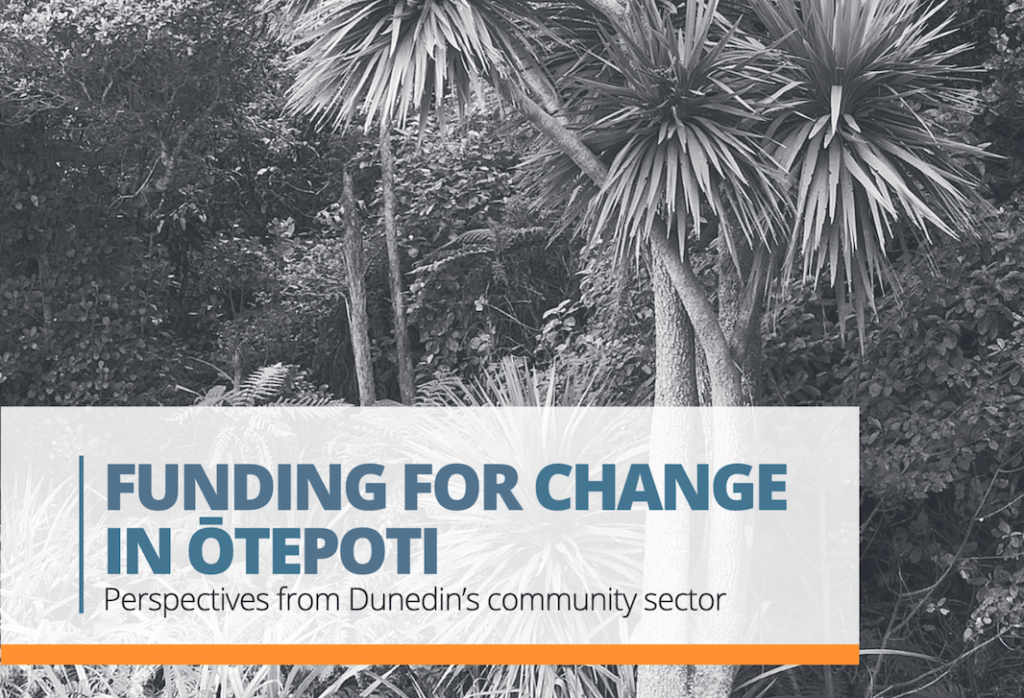





Shaping the Future
Alongside honest conversations about who holds power, these shifts summarise the key interconnected approaches that will build community resilience, grow a sustainable economy and drive transformative change.
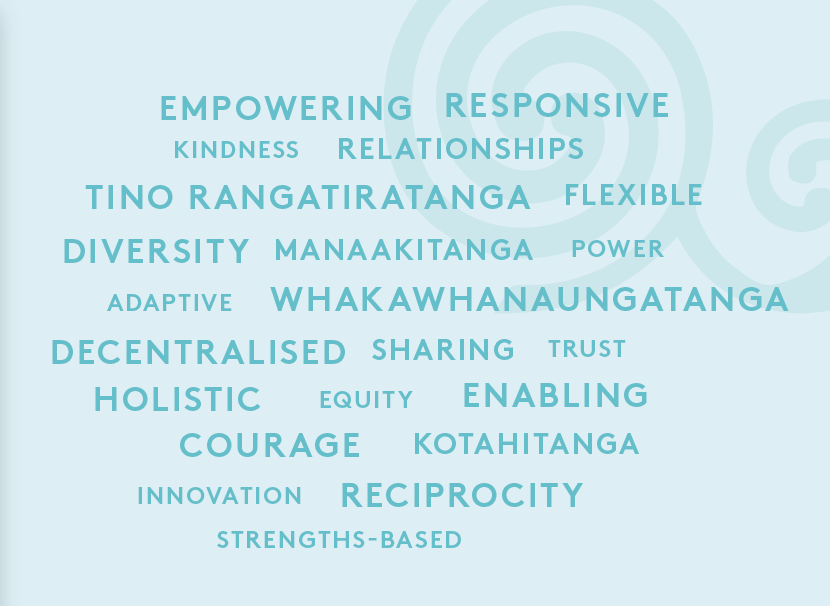
While we produced these shifts and associated webinars during 2020 with Covid-19 as the focus – the lessons we learned, the experiences we had, and what we achieved goes far beyond – and offers us all a chance to bring these ways of working into shaping the future.
1.0 DECENTRALISE
Devolve funding and power to hāpu and local communities. Involve hapū and communities in design and local decision-making processes alongside iwi, councils, business, and other key stakeholders. Support tino rangatiratanga and local self-determination.
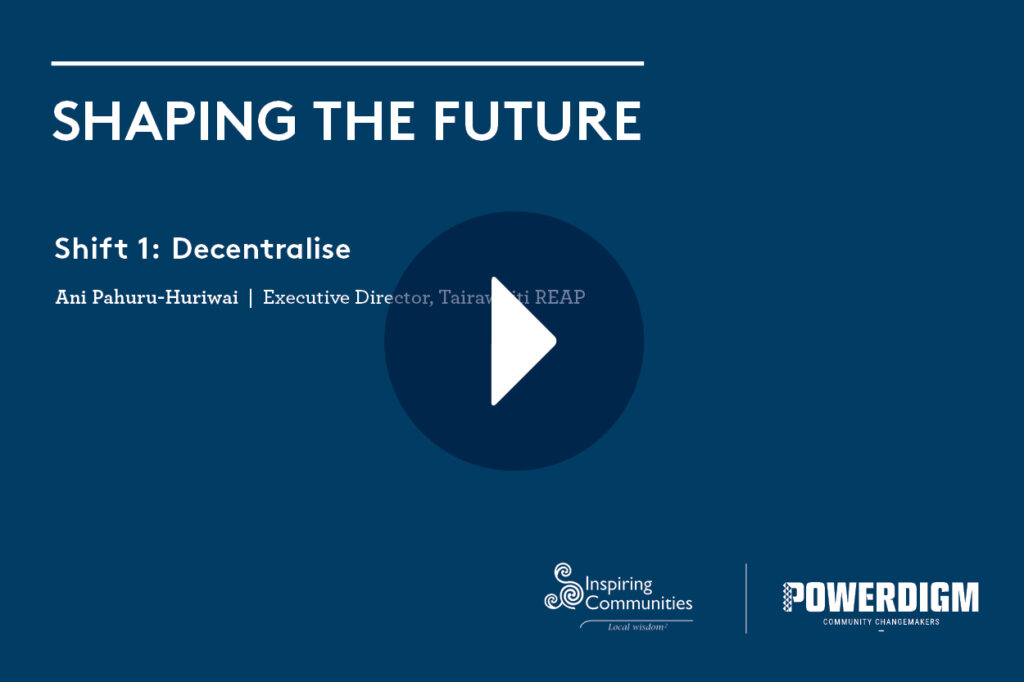
“The strength of Māori and iwi community responses over lock-down highlighted capability and reinforced the need for systems with more autonomous Māori leadership and decision making.”
2.0 RECOGNISE AND RESPECT DIFFERENCES
A variety of responses will be needed to serve and support diverse parts of local communities and enable equity. One size solutions do not fit all, and imposing them can undermine local initiatives and marginalise those outside the mainstream.
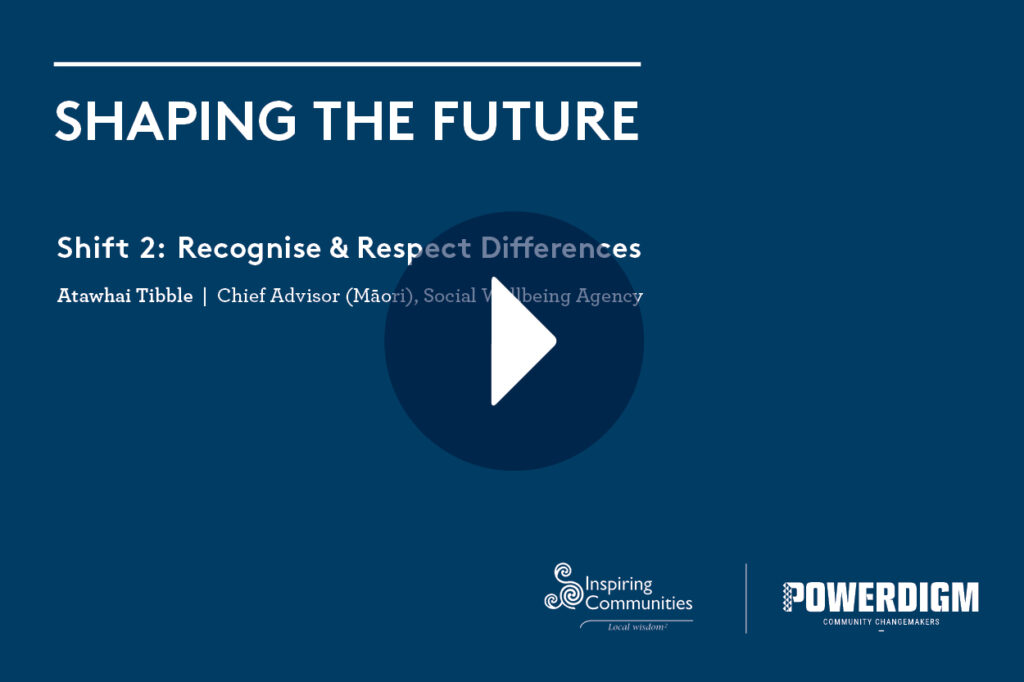
“Go to where people are and actively ensure that diverse voices are included.”
3.0 VALUE PEOPLE AND RELATIONSHIPS
People, connections and trust make things happen. Build social infrastructure through networks, brokering and weaving roles. Relationship comes before partnership.
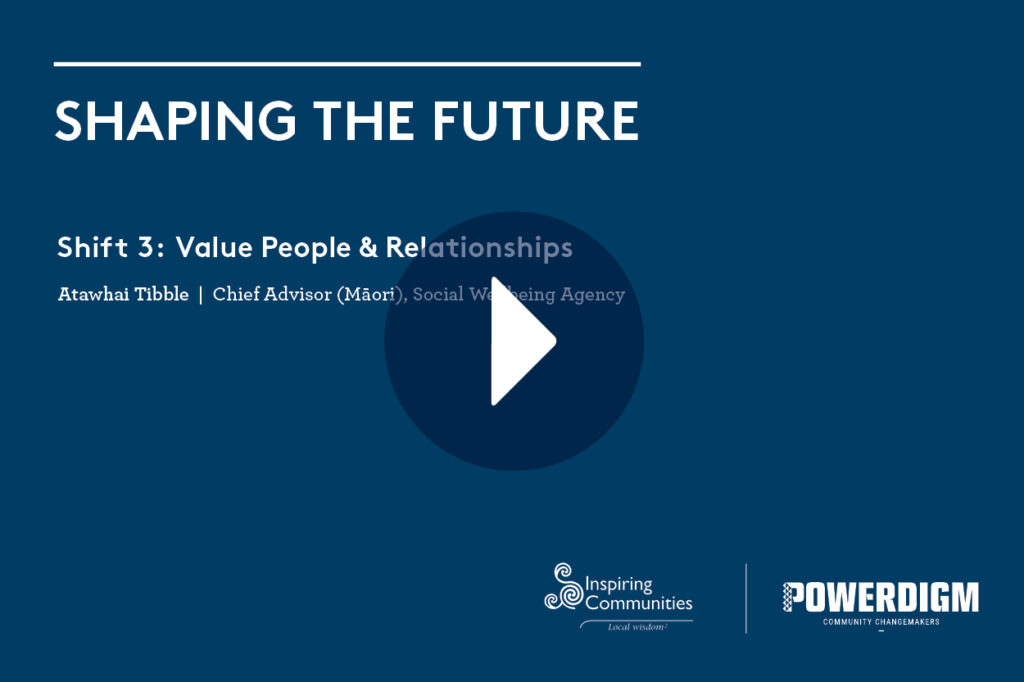
“Value relationships, because those who are close see what nobody else sees.”
4.0 EMBED COLLABORATION
Look for further opportunities to work with others, especially across silos. Partnering makes better use of local resources, shares risk and encourages innovation and learning.
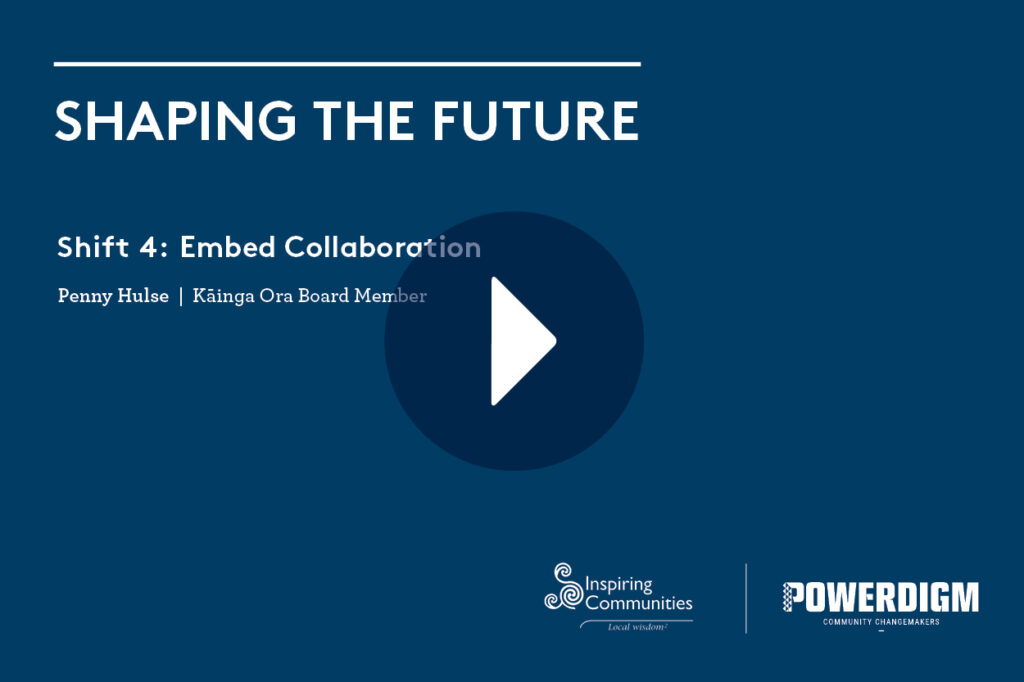
“Incentivise collaboration by providing good and realistic funding that rewards truly collaborative approaches. Be willing to pay for relationships, time and process as much as outcomes.”
5.0 BUILD LOCAL ECONOMIC RESILIENCE AND REDEFINE SHOVEL READY
Fund locally-led enterprise and action. Support processes and capability building that connects and builds a more integrated social and economic capacity.
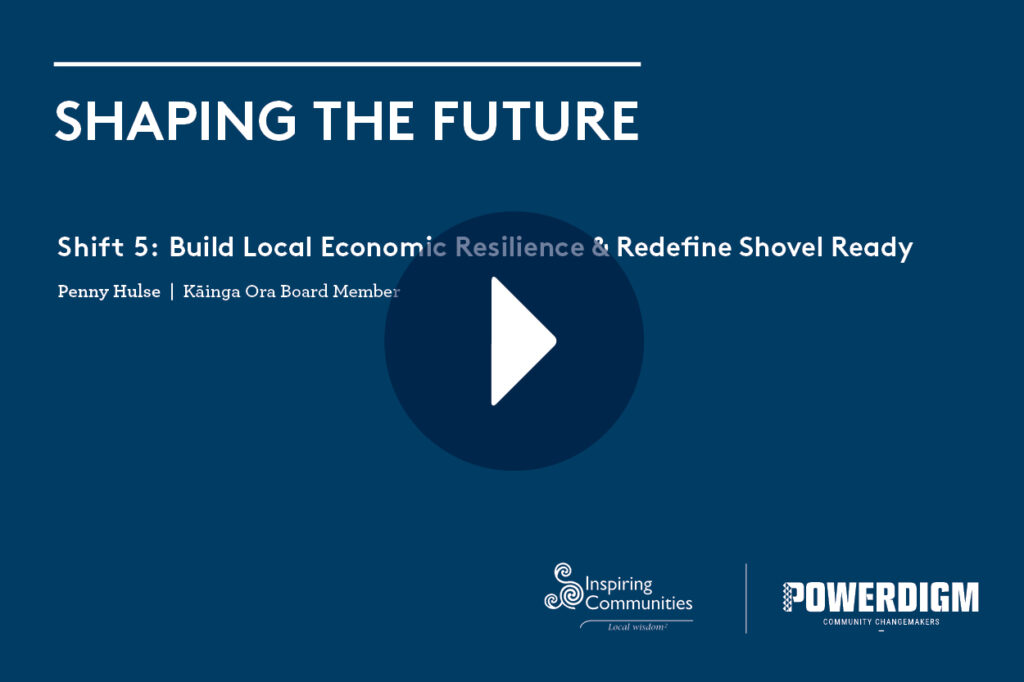
“We need a Grassroots PGF fund that enables different and broader parts of the community to get involved in local resilience conversations and be part of action taking too.”
6.0 TOLERATE MORE RISKS
Complex challenges require creative responses to see what works. Mandate innovation and learning. Provide flexible funding and parameters that allow for change and adaptation.
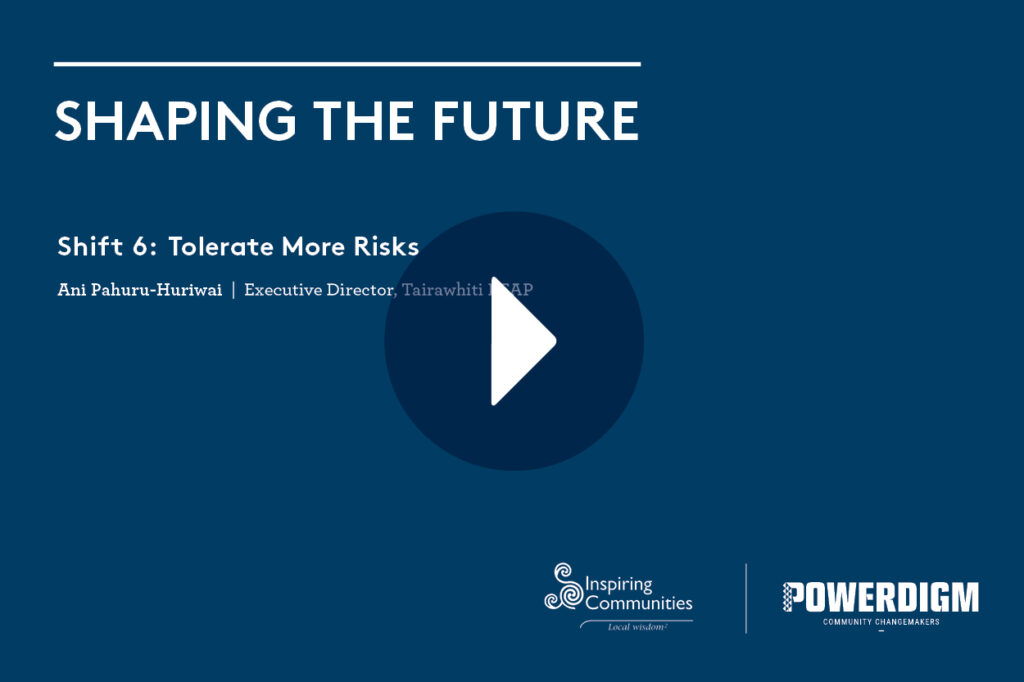
“Look at what happened when we were flexible and responsive, and nothing went wrong! A lot of rule-breaking happened, and nothing went wrong. But many things went right.”
Other Quick Links
Other reports from across the motu:
Change is interconnected. Others have been gathering helpful insights into their mahi and are kindly sharing them with our community – take a look at the findings from other organisations and initiatives in different regions across the country:
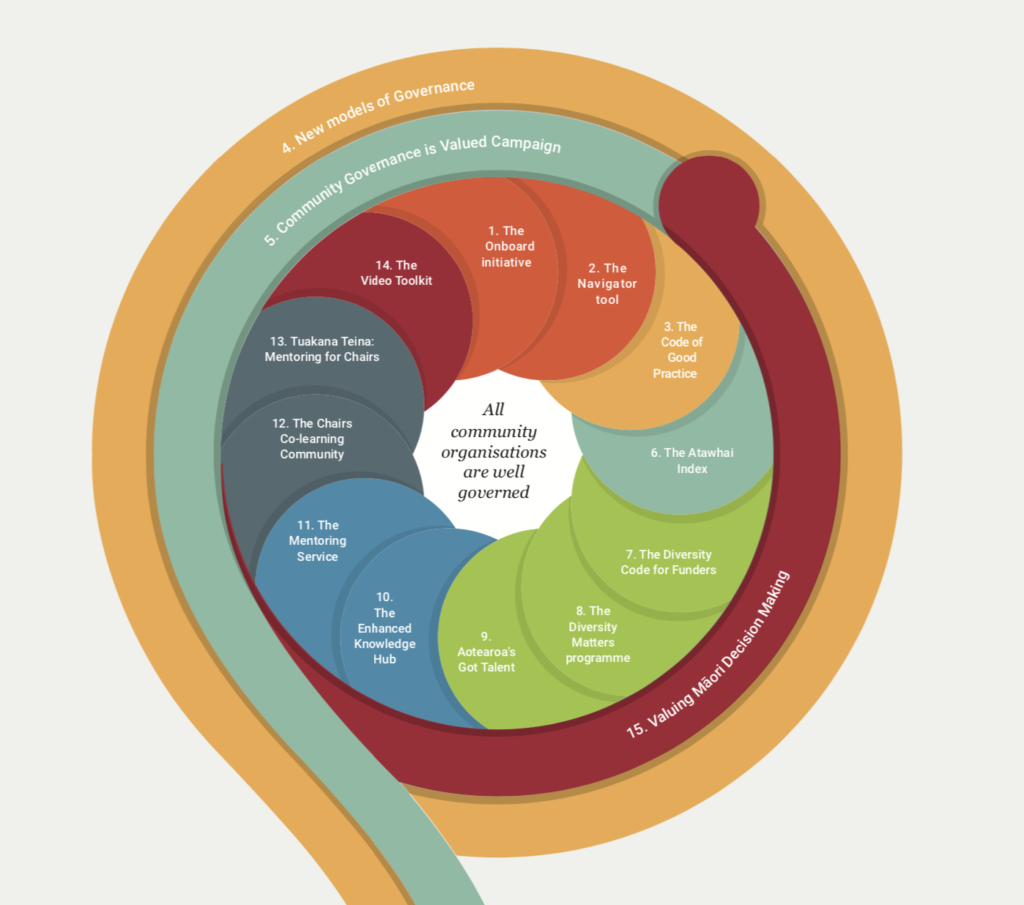
The National Action Plan for Community Governance: Building a system of support for good governance.
Find the National Action Plan for Community Governance by the Centre For Social Impact here.
To be able to do their mahi, the community sector relies on funding. During the first lockdown, Mātāwai Consultancy and Dunedin Community Builders surveyed the Ōtepoti Community sector to find out more about challenges and strengths related to their funding.
